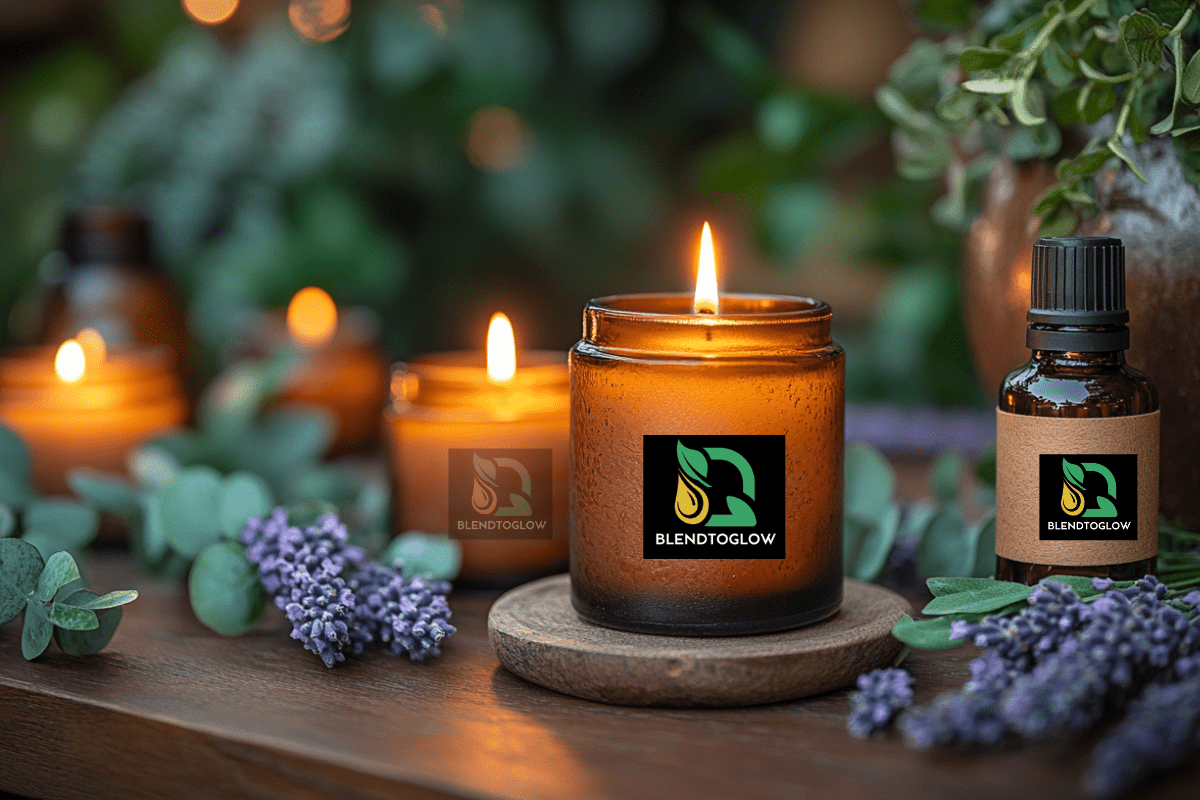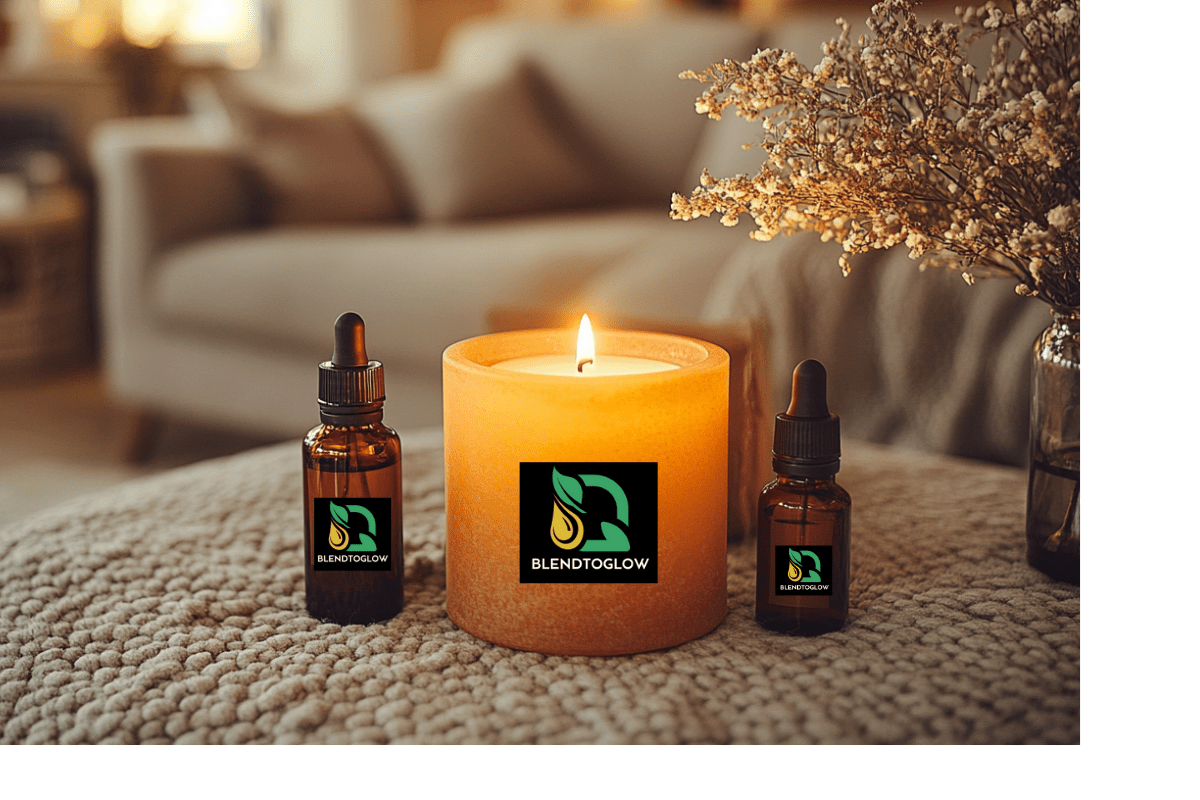Falling asleep should be easy—but for many people, it isn’t. Sleeping problems for many is a big issue. Busy minds, late-night scrolling, and daily worries often make it hard to unwind. If you find yourself lying awake at night or waking up feeling unrested, you’re not alone. Millions of people experience some kind of sleeping disorders each year.
Instead of turning to quick fixes or pills, more people are finding comfort in natural remedies. Aromatherapy for sleep is one of the simplest and most relaxing ways to bring back calm and balance. It uses nature’s pure plant extracts—essential oils—to create an environment that supports deep, peaceful rest.
What Makes Aromatherapy Work for Sleep
Smell is powerful. It can calm, energize, or remind us of comforting moments. When you breathe in an essential oil, its aroma travels through your nose to a part of the brain called the limbic system. This area influences emotions, memory, and sleep patterns.
Certain plant oils contain natural compounds that reduce stress and tension. They help your body feel safe and relaxed, which makes it easier to drift off naturally. Unlike sleeping pills, which force your body to shut down, aromatherapy gently guides your mind and body toward rest.
Best Essential Oils for Sleeping Problems
Some oils are known for their energizing effects, but others are made for stillness and calm. Below are a few that can help if you struggle with sleeping problems or restless nights.
Lavender
Lavender is a classic choice for better sleep. It helps quiet the mind, lowers stress, and encourages deeper rest. The soft, floral scent feels familiar and comforting—perfect after a long day.
Petitgrain
Made from the leaves of the bitter orange tree, petitgrain has a fresh, green-citrus scent. It’s often used to ease tension, slow rapid thoughts, and support steady breathing before bed.
Chamomile
Chamomile is a gentle, calming oil that’s especially good if you feel anxious at night. It soothes both body and mind, helping you let go of the day’s stress.
Cedarwood
This warm, woody oil helps you feel grounded. It supports the natural production of melatonin—the hormone that tells your body it’s time to sleep.
Ylang Ylang
Ylang ylang has a sweet, exotic fragrance that brings comfort and emotional balance. It helps lower heart rate and relax tense muscles.
Bergamot
Unlike most citrus scents, bergamot helps you slow down instead of wake up. It eases stress and makes your bedroom feel peaceful and safe.
You can create your own mix or start with a ready-made blend designed for sleep. To explore natural options, visit the Aromatherapy Diffuser Oils Collection.
How to Use Essential Oils for Sleep
You don’t need to be an expert to use essential oils effectively. A few simple steps are enough to make aromatherapy part of your nightly routine.
1. Diffuse Your Oils
A diffuser is one of the easiest ways to enjoy aromatherapy. Add 4–6 drops of your favorite calming oil, and let the mist fill your room for 20–30 minutes before bed.
If you prefer a ready-made blend, try the Sleep Serenity Diffuser Blend It combines lavender and petitgrain to create a gentle, sleep-friendly aroma that helps your mind settle.
Tip: Run your diffuser away from open windows or air vents so the scent spreads evenly.
2. Light a Candle for Calm
Aromatherapy candles combine gentle light with soothing fragrance, creating a sense of comfort before bed.
The Sleep Serenity Candle is made with natural essential oils like lavender and petitgrain, known to ease anxiety and improve sleep. Light it 15 minutes before bedtime, then blow it out before you lie down.
3. Make a Pillow Mist
Mix 30 ml of water with 4–5 drops of lavender or chamomile oil in a small spray bottle. Shake and mist lightly over your pillow and sheets. The fragrance helps relax your body as you breathe through the night.
4. Take a Relaxing Bath
A warm bath before bed helps relax muscles and quiet your thoughts. Add 6–8 drops of a calming essential oil like ylang ylang or lavender to the water. The steam will gently carry the scent, turning your bath into a natural sleep remedy.
5. Use Oils on Skin (Topical Use)
Blend a few drops of essential oil with a carrier oil such as jojoba or coconut oil. Rub gently on your wrists, temples, or neck. The scent stays close as you drift off, and the act of massaging also helps release tension.
Create a Calming Bedtime Routine
Aromatherapy works best when used regularly as part of a relaxing bedtime ritual. Try this simple sequence:
-
Dim the lights 30 minutes before bed.
-
Start your diffuser or light a candle.
-
Read a book or write a few lines in a journal.
-
Take five deep breaths to relax your shoulders.
-
Apply or spray your favorite calming scent before lying down.
Repeating this routine helps your body link these steps—and those scents—with sleep.
Lifestyle Habits That Support Better Sleep
Essential oils work even better when combined with a few healthy habits. Here are simple things that make a big difference:
-
Keep your bedtime and wake-up time the same each day.
-
Avoid coffee, alcohol, and heavy meals late in the evening.
-
Keep your bedroom cool and dark.
-
Limit screen use an hour before bed.
-
Spend time outdoors during the day to help balance your sleep cycle.
These small choices work together with aromatherapy to improve overall sleep quality.
Why Choose Aromatherapy Over Pills
Many people reach for sleep aids when they can’t rest, but these often give only short-term relief. They may also cause grogginess or dependence. Aromatherapy takes a different path. It supports your body’s natural rhythm instead of forcing it.
Plant-based oils help calm your nervous system, slow your breathing, and release stress—without side effects. They don’t make you sleep instantly but help your body remember how to relax naturally.
This makes aromatherapy one of the most sustainable sleeping problem solutions you can use at home.
Safety Tips
Essential oils are powerful, so a few safety steps make them even more effective:
-
Always mix with a carrier oil before putting them on skin.
-
Keep away from eyes and mouth.
-
Diffuse for 20–30 minutes at a time instead of running all night.
-
If you’re pregnant or under medical treatment, ask your doctor before using oils.
-
Store oils in a cool, dark place, away from children and pets.
Handled correctly, aromatherapy is gentle and safe for regular use.
Sample Bedtime Routine with Aromatherapy
Here’s how a simple evening can look when you use aromatherapy to unwind:
-
1 hour before bed: Take a warm shower or bath with lavender oil.
-
30 minutes before bed: Start your diffuser with a calming blend like lavender and petitgrain.
-
15 minutes before bed: Light a candle and dim the lights.
-
At bedtime: Spray your pillow or apply diluted oil to your wrists.
-
As you lie down: Take slow, deep breaths and relax your muscles one by one.
This easy ritual signals your mind that it’s time to rest, helping you fall asleep faster and sleep more deeply.
Final Thoughts
Good sleep is not a luxury—it’s part of good health. If stress or restlessness keeps you awake, aromatherapy offers a simple, natural way to find calm again. Essential oils like lavender, chamomile, and cedarwood help quiet busy thoughts and prepare your body for rest. Used in a diffuser, candle, or pillow mist, these scents can turn your bedroom into a peaceful retreat. With a few drops of nature’s calm, every night can end in peace—and every morning can begin with energy and clarity.



